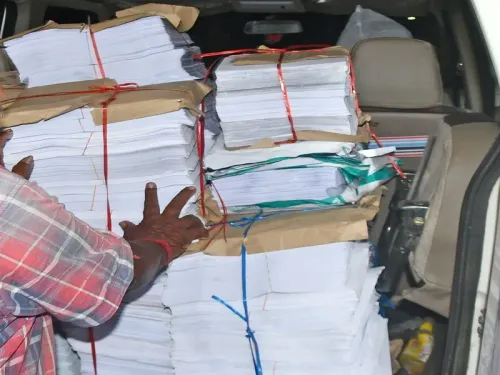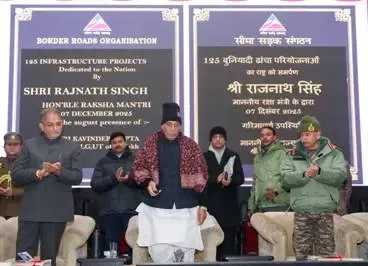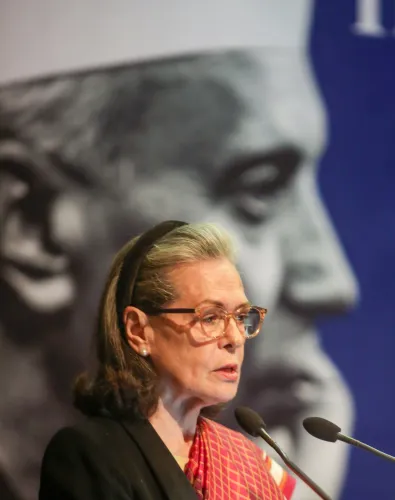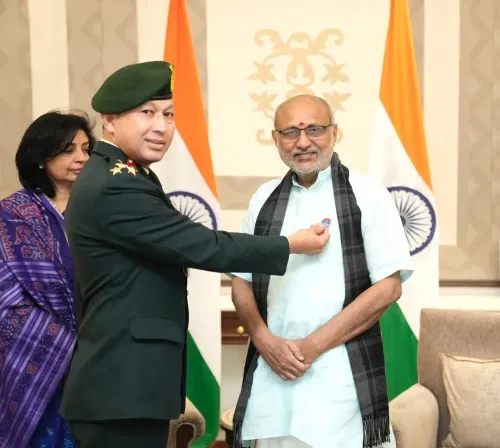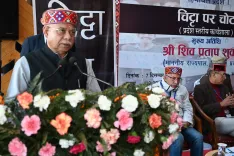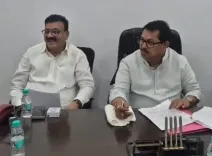Is India's 'No More' a Firm Stand Against Terror Networks After Operation Sindoor?

Synopsis
Key Takeaways
- Operation Sindoor signifies India's zero tolerance towards cross-border terrorism.
- A total of 70 terrorists were eliminated during the operation.
- The operation was a direct response to the Pahalgam terror attack.
- India maintained a measured approach, avoiding escalation with Pakistan.
- The government emphasized accountability for acts of terror against its citizens.
New Delhi, May 7 (NationPress) Just hours following the initiation of Operation Sindoor by the Indian armed forces, which targeted nine significant terror sites in Pakistan and Pakistan-occupied Kashmir (PoK), India conveyed a resolute message of zero tolerance towards cross-border terrorism, declaring firmly -- "No more."
This operation was a direct response to the tragic Pahalgam terror attack on April 22, where 25 Indian tourists and a local Kashmiri pony ride operator lost their lives.
As Indian Army Colonel Sofiya Qureshi and Indian Air Force Wing Commander Vyomika Singh took the podium alongside Foreign Secretary Vikram Misri to address the media, a haunting video played in the background detailing over two decades of horrific terrorist attacks on Indian soil.
The video showcased footage from the 2001 Parliament attack, the 2002 Akshardham Temple attack in Gujarat, the 2008 Mumbai attacks, and more recent incidents in Uri, Pulwama, and Pahalgam.
A closing statement in the video highlighted: "More than 350 Indian civilians have succumbed to cross-border terrorism in the past decade, with 800 injured in these heinous acts. Over 600 security personnel have sacrificed their lives, and more than 1,400 have been injured while defending our nation against this menace."
The video concluded with the stark message: "No More" -- followed by "Operation Sindoor."
Government sources reported the elimination of 70 terrorists, including key commanders from Lashkar-e-Taiba and Jaish-e-Mohammed, during 24 missile strikes across nine terror-associated sites in Pakistan and PoK.
These locations included camps, safehouses, and logistical hubs utilized for plotting attacks against India.
"It was a statement of strategic resolve," remarked a senior source.
"Through 24 meticulously coordinated missile strikes across nine terrorist-linked sites, India demonstrated it would no longer accept cross-border terrorism, nor the complicity of state institutions that facilitate it."
The strikes were characterized as swift and precisely executed. All missiles reached their designated targets within an hour, with UAVs providing real-time verification. The timing and coordination were aimed at ensuring surprise and minimizing exposure.
"This represented a significant evolution in strategic posture -- a departure from previous doctrinal constraints," the source added.
India emphasized that the operation was a calibrated military action, not an act of escalation.
"Our actions have been focused, measured, and non-escalatory in nature. No Pakistani military facilities were targeted. India has shown considerable restraint in choosing targets and executing the operation," stated the government.
Foreign Secretary Misri emphasized that India's goal was to dismantle the terror infrastructure without jeopardizing civilians or igniting a larger conflict.
"Operation Sindoor was a proportionate and responsible response to Pakistan's continued support for terrorism," he noted.
He further remarked that in the aftermath of the Pahalgam attack, Pakistan had only offered denials and accusations, failing to act against the actual perpetrators.
The operation was a cooperative effort involving the Army, Navy, and Air Force, commencing at 1:44 a.m., with Prime Minister Narendra Modi overseeing the mission through the night in close collaboration with senior commanders and National Security Advisor Ajit Doval.
"This government has upheld its promise -- those accountable will face justice," India declared in a statement, reinforcing the message that acts of terror against its citizens will no longer remain unanswered.


